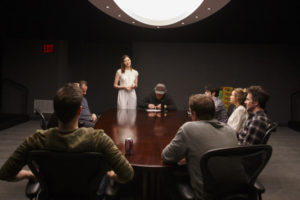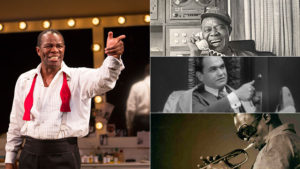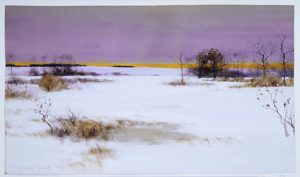Here’s my list of recommended Broadway, off-Broadway, and out-of-town shows, updated weekly. In all cases, I gave these shows favorable reviews (if sometimes qualifiedly so) in The Wall Street Journal when they opened. For more information, click on the title.
BROADWAY:
• Dear Evan Hansen (musical, PG-13, all shows sold out last week, reviewed here)
• Groundhog Day (musical, G/PG-13, reviewed here)
• Hamilton (musical, PG-13, Broadway transfer of off-Broadway production, all shows sold out last week, reviewed here)
• On Your Feet! (jukebox musical, G, reviewed here)
• Present Laughter (comedy, PG-13, closes July 2, reviewed here)
• Six Degrees of Separation (serious comedy, PG-13/R, closes July 16, reviewed here)
• Sweat (drama, PG-13, Broadway transfer of off-Broadway production, original production reviewed here)
OFF BROADWAY:
• The Fantasticks (musical, G, suitable for children capable of enjoying a love story, closes June 4, reviewed here)
 CLOSING SOON OFF BROADWAY:
CLOSING SOON OFF BROADWAY:
• Vanity Fair (serious comedy, PG-13, newly extended through May 27, reviewed here)
CLOSING NEXT WEEK ON BROADWAY:
• The Price (drama, G, too long and serious for children, all shows sold out last week, extended through May 14, reviewed here)


 “The Antipodes” takes place in an anonymous corporate conference room around whose central table eight of the play’s characters sit. Sarah (Nicole Rodenburg), the ninth character, is an air-headed secretary who flits in and out at odd intervals, changing her jumpsuit for each entrance. Cases of LaCroix Sparkling Water, the trendy flavored seltzer, are stacked against one wall of the room, signaling that its occupants are hip. Sandy (Will Patton), the boss, is an aging businessman-hipster who wears (what else?) a baseball cap….
“The Antipodes” takes place in an anonymous corporate conference room around whose central table eight of the play’s characters sit. Sarah (Nicole Rodenburg), the ninth character, is an air-headed secretary who flits in and out at odd intervals, changing her jumpsuit for each entrance. Cases of LaCroix Sparkling Water, the trendy flavored seltzer, are stacked against one wall of the room, signaling that its occupants are hip. Sandy (Will Patton), the boss, is an aging businessman-hipster who wears (what else?) a baseball cap….
 Of all the Tony Award nominations that were announced today, the one that means the most to me went to John Douglas Thompson for
Of all the Tony Award nominations that were announced today, the one that means the most to me went to John Douglas Thompson for  This show has been widely and enthusiastically reviewed, with good reason—it’s the most ambitious exhibition of its kind ever to be mounted—and
This show has been widely and enthusiastically reviewed, with good reason—it’s the most ambitious exhibition of its kind ever to be mounted—and  • What struck me most forcibly about “American Watercolor in the Age of Homer and Sargent” was the large number of first-class watercolors by artists whose names were unfamiliar to me.
• What struck me most forcibly about “American Watercolor in the Age of Homer and Sargent” was the large number of first-class watercolors by artists whose names were unfamiliar to me. “American Watercolor in the Age of Homer and Sargent” isn’t a perfect show, not least because it stops a bit too soon. The great American watercolorists of the first part of the twentieth century, John Marin and Charles Demuth in particular, are hastily fobbed off as afterthoughts rather than being presented as the culmination of a major line of artistic development. Nevertheless, this is an immensely important and satisfying exhibition, and since it won’t be traveling beyond Philadelphia, you should make every possible effort to see it while you can.
“American Watercolor in the Age of Homer and Sargent” isn’t a perfect show, not least because it stops a bit too soon. The great American watercolorists of the first part of the twentieth century, John Marin and Charles Demuth in particular, are hastily fobbed off as afterthoughts rather than being presented as the culmination of a major line of artistic development. Nevertheless, this is an immensely important and satisfying exhibition, and since it won’t be traveling beyond Philadelphia, you should make every possible effort to see it while you can.